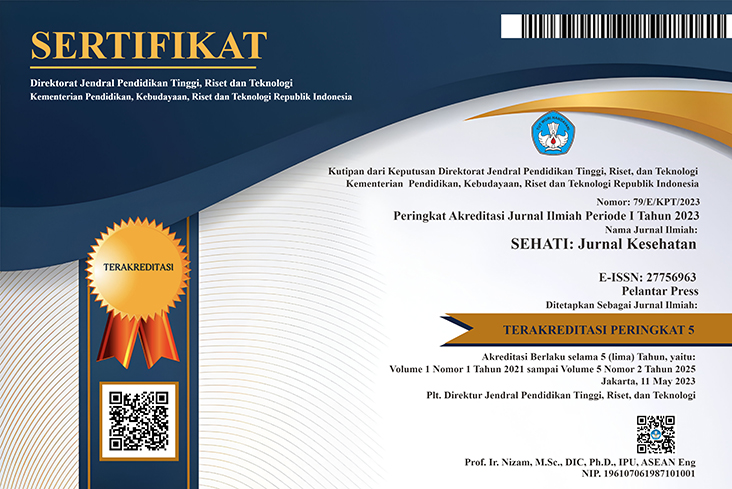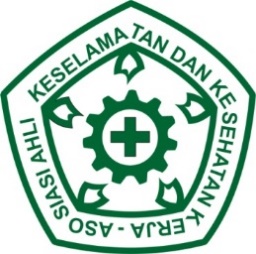Strategi Pengelolaan Limbah Pabrik Tahu di Desa Tarai Bangun Kecamatan Tambang Kabupaten Kampar
Abstract
Tofu is a traditional food for most people in Indonesia, which is favored by almost all levels of society including those in Riau Province. Besides containing good nutrition, making tofu is also relatively cheap and simple. It tastes good and the price is affordable by all levels of society. At present, the tofu business in Riau Province is on average still carried out with simple technology, so that the efficiency level of resource use (water and raw materials) is felt to be still low and the level of waste production is also relatively high. The purpose of this research is to develop a waste management strategy for the tofu pabarik tofu in Tarai Bangun Village, Tambang District, Kampar Regency. In general, tofu is made by craftsmen or home industries with simple equipment and technology. The process order or method of making tofu in all small tofu industries is generally almost the same and even if there is a difference it is only in the order of work or the type of protein coagulating agent used. This research was conducted in September - November 2010. The research location is a tofu factory in Jalan Sukajadi, Tarai Bangun village, Tambang sub-district, Kampar district. Sampling was done using the AHP questionnaire for the tofu factory waste management strategy. The management of the tofu factory should pay attention to several important things as the researchers recommended. These parameters consist of aspects of ecology, economy, socio-culture, environmental ethics, PP-UU, chemistry and physics. The results obtained based on the distribution of questionnaires can be seen in Figure 5. Based on the seven parameters presented the chemical parameters have the highest value, namely 0.33 and 0.26 physics, while the environmental ethics parameter is 0.17. The hierarchical rankings of the tofu factory business management in this study are, respectively, chemical, physical, UU-PP, environmental ethics, socio-culture, economy and ecology. Even though the ecological parameter is in the last rank in this hierarchy, where ecologically the pollution has not been so severe, it is proven that in the research location it does not cause social conflict with the surrounding community and the ethics used is still on biocentrism.
Keywords
Full Text:
PDFReferences
Basaran, B. (2013). What makes manufacturing companies more desirous of recycling? Management of Environmental Quality: An International Journal. 24 (1): 107- 122.
Dewi, J.R., Budijono., Purwanto, E. (2019). Kualitas Limbah Cair Tahu Di Kolam Penampungan dan Pengaruhnya Terhadap Sungai Tarai, Kampar. Jurnal Online Mahasiswa (JOM). Pekanbaru.
Mohanty, M. (2012). New renewable energy sources, green energy development and climate change: Implications to Pacific Island countries. Management of Environmental Quality: An International Journal. 23 (3): 264-274.
Nasir, M. &Fatkhurohman. (2010). Model pembentukan kesadaran kolektif terhadap manajemen lingkungan pengusaha kecil tahu – tempe di Solo. Laporan Hibah Bersaing. Dikti.
Siregar, S.A. (2005). Instalasi Pengolahan Air Limbah. Yogyakarta: Kanisius.
Thomas L. Saaty, Luis G. Vargas. (2012). Models, Methods, Concepts & Applications of the Analytic Hierarchy Process, Springer Science Business Media New York.
Wilson, D.C., Parker, D., Cox, J., Strange, K., Willis, P., Blakey, N., dan Raw, L. (2012). Business waste prevention: A review of the evidence. Waste Management & Research. 30 (9): 17-28.
Xue, M., Li, J., dan Xu, Z. (2013). Management strategies on the industrialization road of state-of-the-art technologies for e-waste recycling: the case study of electrostatic separation: A review. Waste Management & Research. 31 (2): 130- 140.
DOI: https://doi.org/10.52364/sehati.v3i1.35
Refbacks
- There are currently no refbacks.
Copyright (c) 2023 Pelantar Press

This work is licensed under a Creative Commons Attribution-NonCommercial 4.0 International License.

Ciptaan disebarluaskan di bawah Lisensi Creative Commons Atribusi-NonKomersial 4.0 Internasional.




